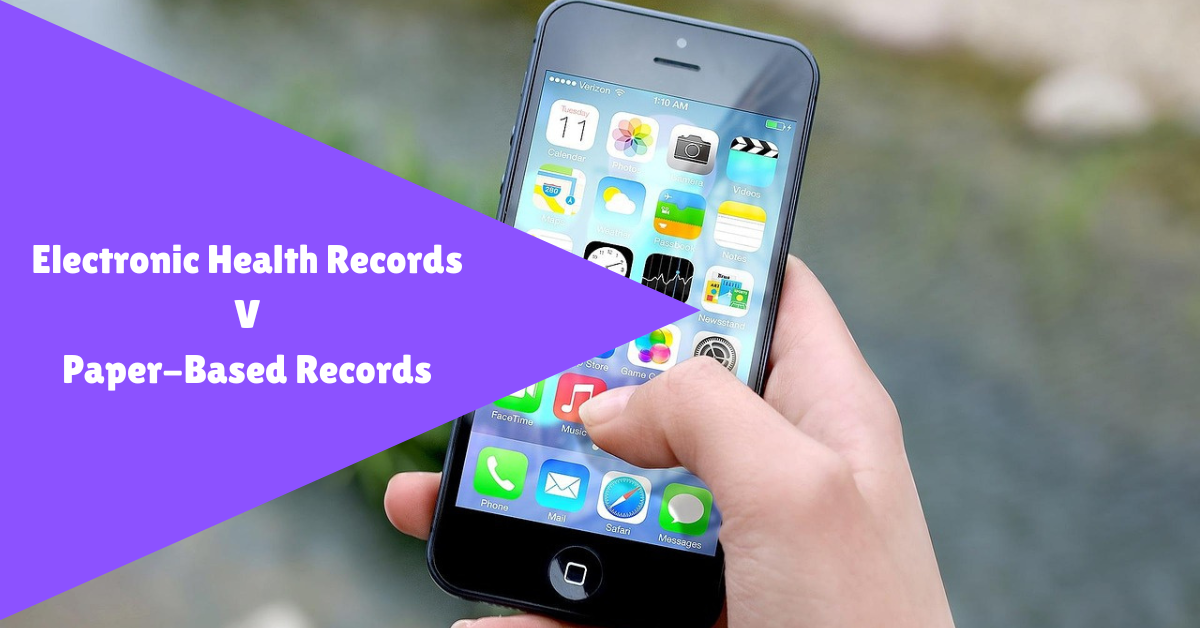As India moves toward digital transformation in healthcare, the debate between electronic health records and paper-based systems becomes increasingly relevant. While paper records have served doctors and hospitals for decades, electronic health records (EHRs) are reshaping how medical data is stored, accessed, and utilized.
In this article, we compare both systems in the Indian healthcare context, highlighting benefits, limitations, and real-life adoption examples.
What Are Paper-Based Health Records?
Paper-based health records are physical files containing patient information—prescriptions, test results, diagnosis notes, and treatment history. These are typically stored in cabinets or folders in hospitals and clinics.
Common Issues in India:
- Storage challenges due to high patient volume
- Prone to damage, theft, or loss
- Difficult to retrieve across departments or during emergencies
- Inconsistent documentation and illegible handwriting
What Are Electronic Health Records (EHRs)?
Electronic health records are digital versions of a patient’s complete medical history maintained over time. EHR systems store information such as:
- Patient demographics
- Vitals and clinical history
- Medications and prescriptions
- Diagnostic reports
- Vaccination records
- Doctor notes and follow-ups
EHRs are securely stored in the cloud or local databases and can be accessed by authorized healthcare providers anytime.
For more information on Electronic Health Records, check out this article.
Electronic Health Records vs Paper-Based Records: Feature-by-Feature Comparison
| Feature | Paper-Based Records | Electronic Health Records |
|---|---|---|
| Accessibility | Limited to one location | Available anywhere, anytime (with permission) |
| Data Accuracy | Prone to human error and illegibility | Structured data entry reduces mistakes |
| Storage | Requires physical space | Cloud or server-based, saving clinic/hospital space |
| Data Sharing | Manual, slow | Instant sharing with labs, specialists, or insurers |
| Security | Vulnerable to theft or damage | Encrypted and password protected |
| Cost Over Time | High due to storage and handling | Lower long-term cost with automation |
| Scalability | Difficult | Easily scalable for growing patient base |
| Search & Retrieval | Manual and time-consuming | Instant digital search |
| Environmental Impact | Paper usage and waste | Eco-friendly and sustainable |
Indian Examples of EHR Adoption
1. AIIMS (All India Institute of Medical Sciences), Delhi
AIIMS has implemented an advanced hospital information system (HIS) integrated with electronic health records, improving coordination among departments and reducing patient wait times.
2. Apollo Hospitals
Apollo’s digital health initiative has enabled EHR-based care across its network, allowing doctors to access patient records across cities, helping frequent travelers and long-term patients.
3. Ayushman Bharat Digital Mission (ABDM)
Launched by the Government of India, ABDM aims to create unique digital health IDs and promote electronic health records nationwide for universal health access.
Benefits of Electronic Health Records in India
1. Improved Patient Care
Doctors can access past prescriptions, lab results, and allergies instantly, reducing errors and improving outcomes.
2. Reduced Administrative Burden
EHRs automate billing, appointment scheduling, and follow-ups, reducing manual paperwork for clinic staff.
3. Better Coordination Between Providers
Whether a patient visits a local GP or a specialist in another state, EHRs ensure continuity of care with complete history sharing.
4. Time and Cost Efficiency
Faster consultations, fewer repeat tests, and reduced paper storage save money for both patients and clinics.
5. Enhanced Public Health Monitoring
EHR systems can generate aggregated data to track disease outbreaks, vaccination coverage, and health trends across regions.
Challenges in Adopting EHRs in India
While the benefits are clear, India also faces some obstacles:
- Digital literacy among rural healthcare providers
- High initial setup costs for small clinics
- Internet connectivity issues in remote areas
- Privacy concerns around patient data
- Resistance to change from manual systems
However, these challenges are being addressed through training programs, government support, and affordable cloud-based solutions.
EHR Software Options in India
Some popular EHR platforms tailored for Indian clinics and hospitals include:
- Practo Ray – Ideal for small clinics
- KareXpert – Cloud-based EHR with AI features
- DocOn – Easy-to-use platform with prescription management
- HealthPlix – Trusted by 10,000+ doctors for OPD and EMR
- Kidscur – Focused on pediatric EHRs with vaccination records and growth tracking
Should Indian Clinics Switch to EHR?
Yes, especially in urban and semi-urban India, are increasingly adopting electronic health records for improved efficiency and patient satisfaction. Government programs and insurance companies are also moving toward digital health integration.
Whether you’re a solo practitioner or managing a hospital chain, adopting EHR not only saves time and money but also enhances the quality of care you provide.
Conclusion
The shift from paper-based systems to electronic health records is transforming healthcare in India. While paper records were once essential, they can no longer keep up with the growing demand for fast, accurate, and connected care.
EHRs offer a scalable, efficient, and secure way to manage patient health data, reduce administrative work, and improve health outcomes, especially as India continues its journey toward digital healthcare. KidsCur provides all medical information related to your children digitally!
Visit the KidsCur site for more details!
FAQs
Q 1: What are the main advantages of electronic health records over paper-based records?
Answer:
Electronic health records (EHRs) offer faster access to patient data, better data accuracy, easier sharing between healthcare providers, and long-term cost savings. They reduce paperwork, improve patient care, and support digital health integration.
Q 2: Are electronic health records safe and secure in India?
Answer:
Yes, EHR systems in India follow strict data security protocols such as encryption and password protection. Government-backed initiatives like the Ayushman Bharat Digital Mission also support privacy and consent-driven data sharing.
Q 3: Can small clinics in India use electronic health records?
Answer:
Absolutely. Many affordable, cloud-based EHR solutions like Practo Ray, DocOn, and Kidscur are designed specifically for small to medium-sized Indian clinics, offering user-friendly interfaces and low setup costs.

